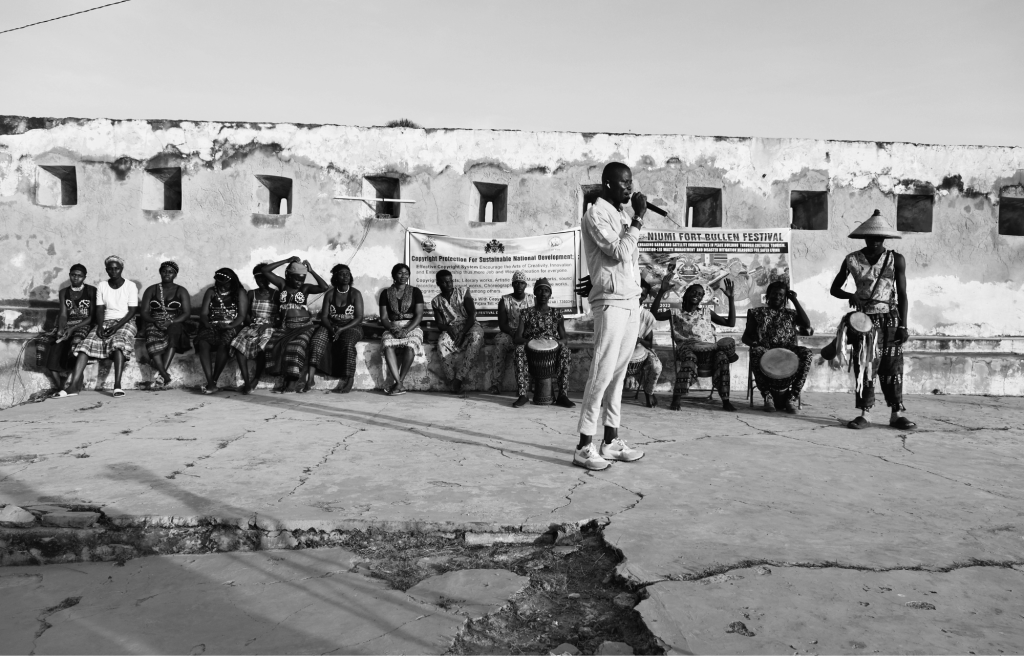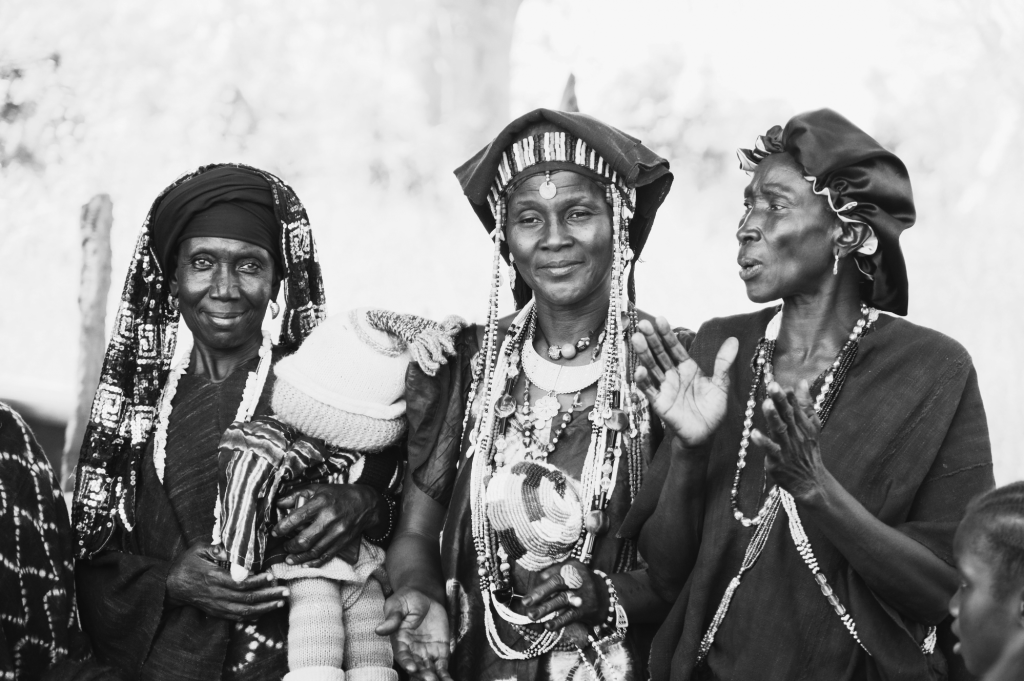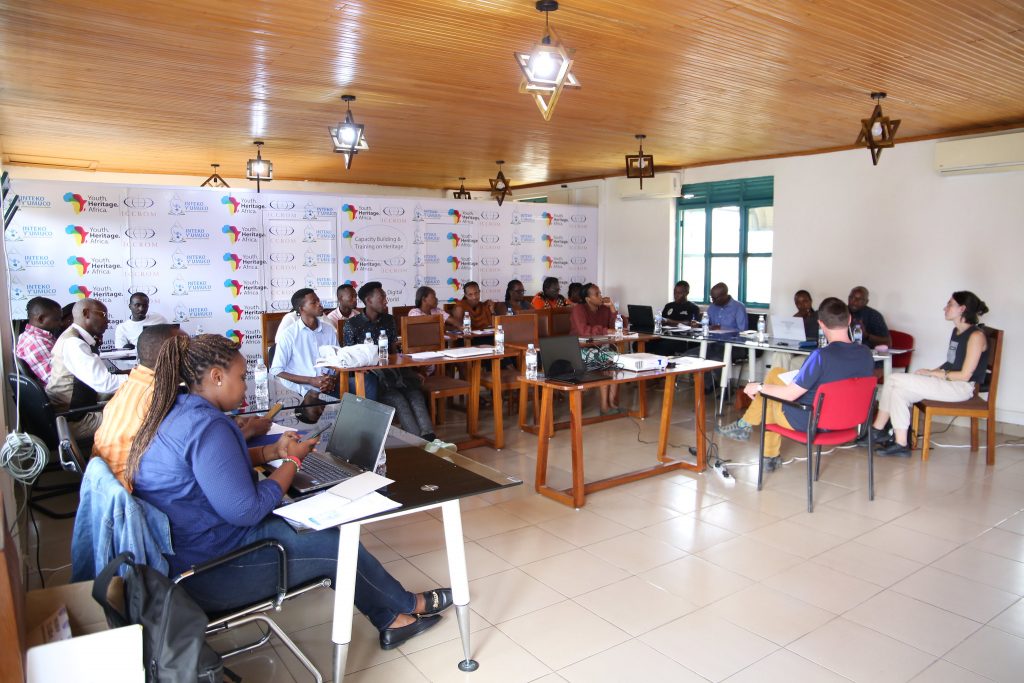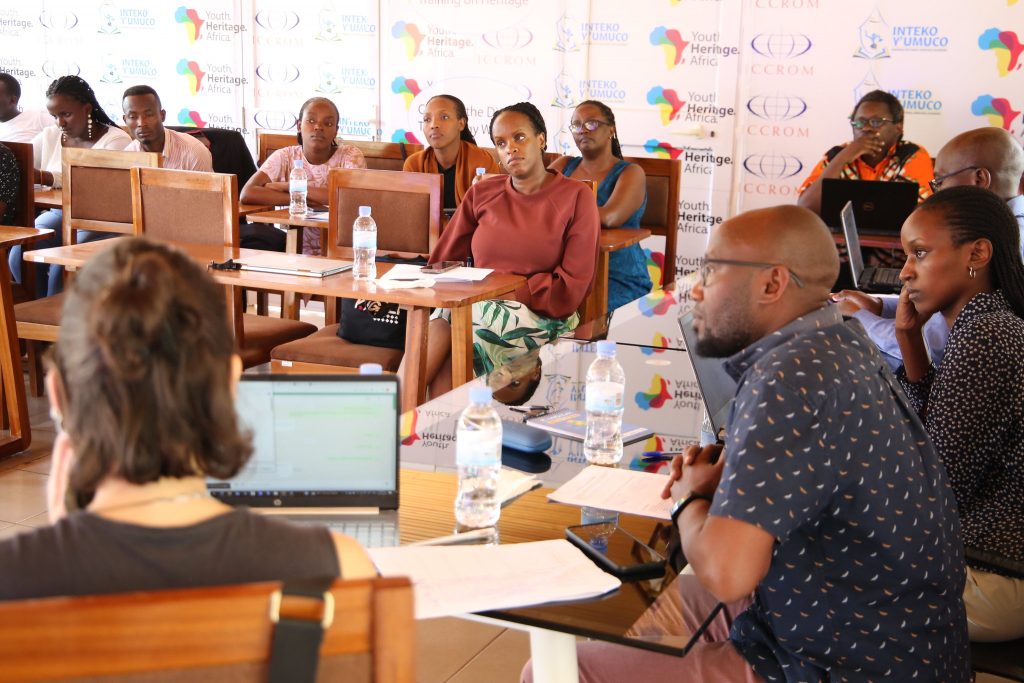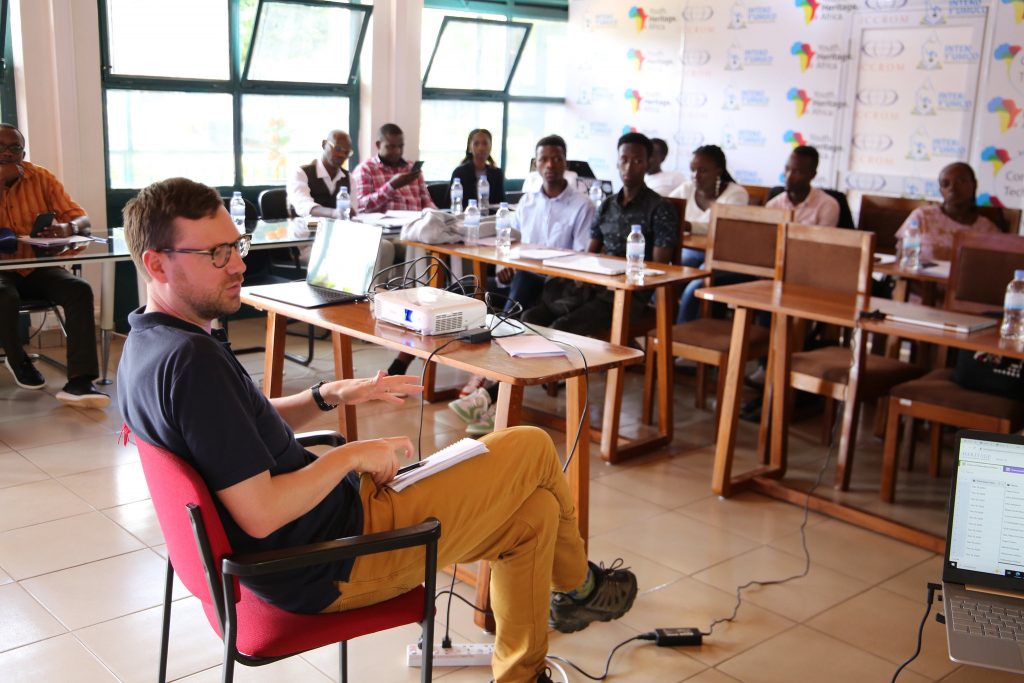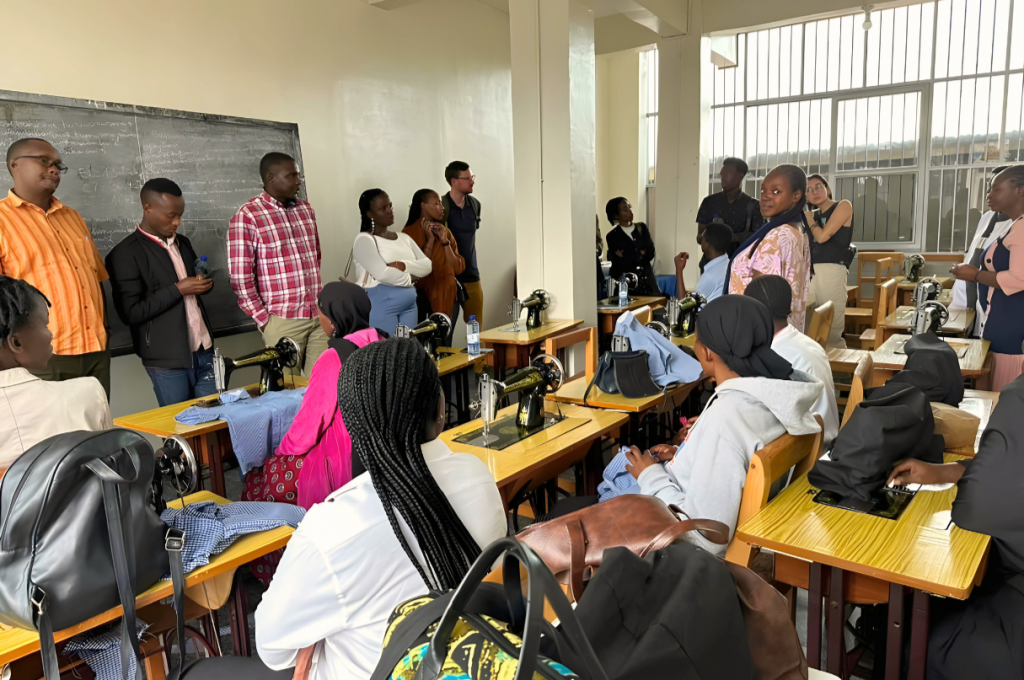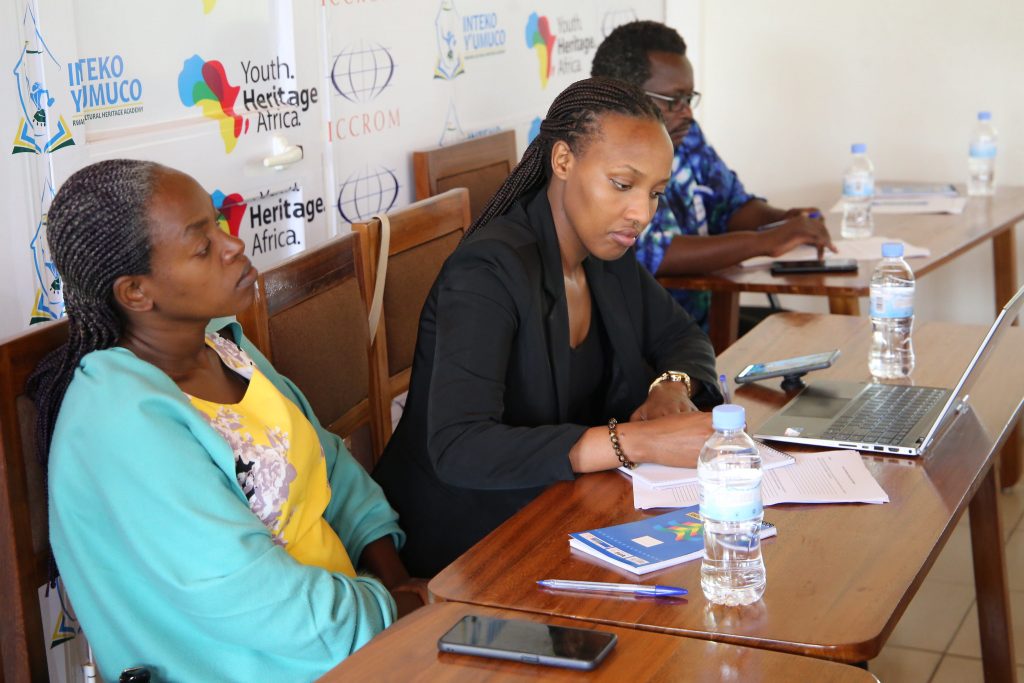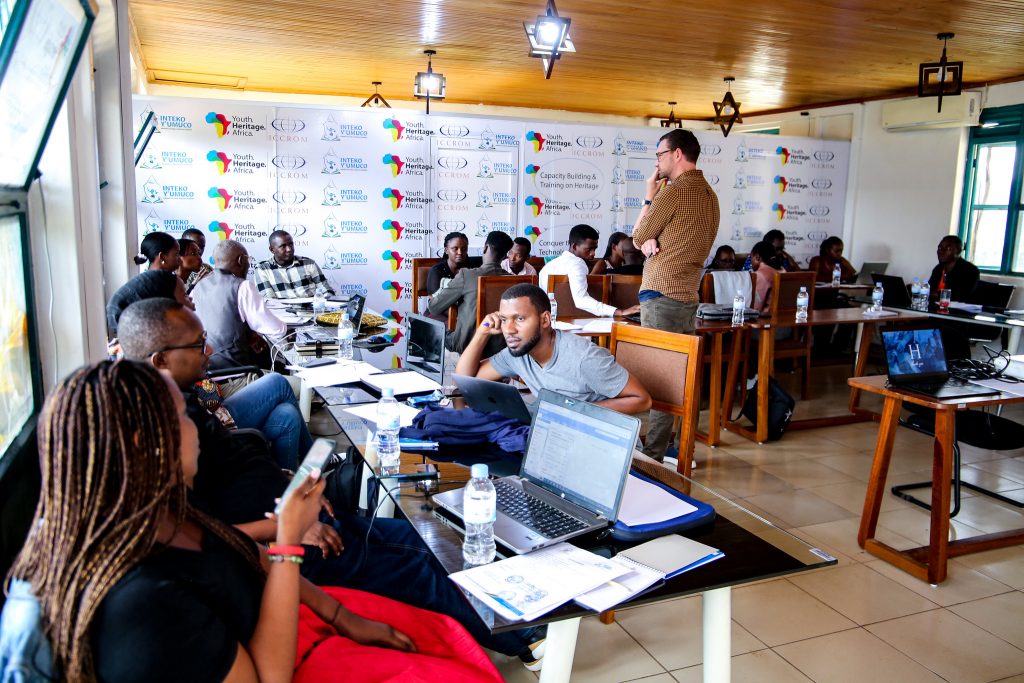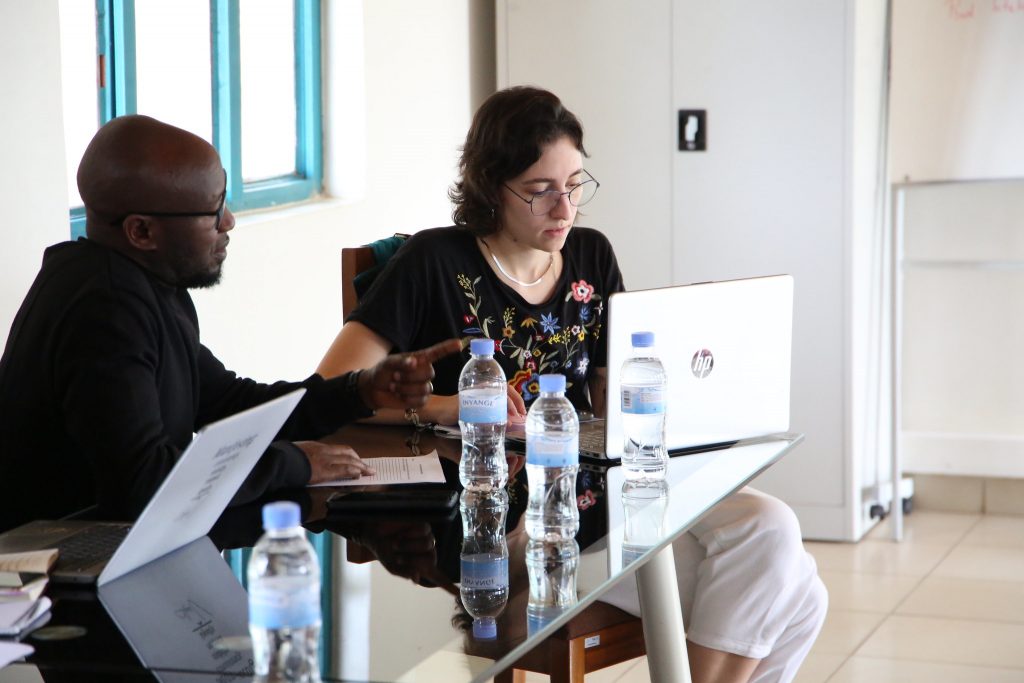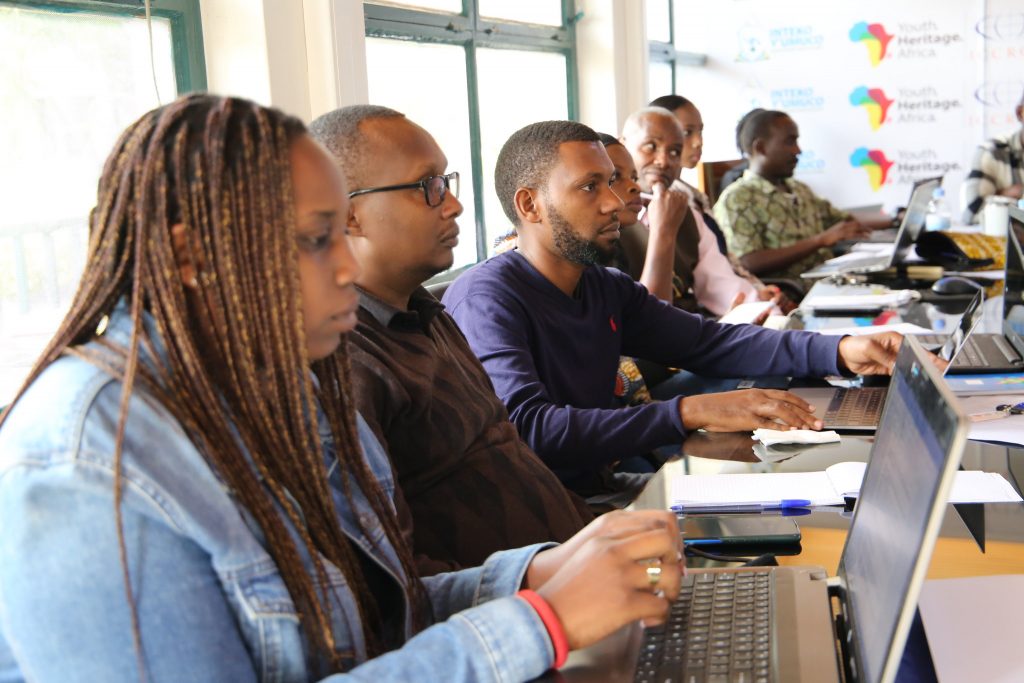Tag Archives: Community Development
Engaging Communities in Cultural Heritage Workshop
Over three days in October, fifteen heritage professionals joined our online workshop to learn more about engaging communities in heritage. Community engagement is one of the key strategies in heritage management and allows
HERITΛGE’s Aris Anagnostopoulos and Eleni Stefanou along with the Organization’s Director, Evangelos Kyriakidis, led the workshop, each working with participants on a different section and drawing on case studies from participants’ own work.
After an introduction into how local perspectives are essential in heritage conservation, participants explored the idea of values and examined how the values tied to heritage by the local community make these communities essential stakeholders in safeguarding the knowledge and importance of heritage sites. Over the course of the workshop, participants also learned techniques for engagement through ethnographic research, values identification, collaborative design and representation of the whole community, looking at case studies from around the world and in different types of sites.
“What I liked most about this course was how it showed the importance of involving communities in preserving heritage,” said eter Adewale Jegede, Curator at Nigeria-based On Your Mark. “I now have a better understanding of how to build trust, encourage collaboration, and ensure that heritage initiatives are inclusive and sustainable. This knowledge will help me design projects that respect community perspectives and create stronger connections between people and their cultural heritage.”
Ibrahim Hassan Gafar Ali Fadolr, Director at University of Nyala Centre for Darfur Heritage said that “Major benefits of this training course shall be used in better planning, implementation and review of performance in dealing with communities with different backgrounds, cultures and linguistic variances. ”
“We were lacking skills of how to bring communities at odd to work jointly together to achieve success on behalf of everyone,” he added.
HERITΛGE offers regular 3-day workshops on Community Engagement in Cultural Heritage, as well as an annual Summer Field School, held in Greece and online.
Community & Economic Development: Introducing a new workshop
By Dr. Paul Burtenshaw
Cultural heritage managers are facing a variety of pressures in managing the economic aspects of heritage resources. Sites are increasingly looked upon as assets for local and national sustainable development, including job creation. Development of tourism at sites can often come with expectations to boost local or national economies. Organizations and authorities are often asked to diversify funding streams. This could include adding commercial elements to their operations – shops, products, events – to enhance stretched public budgets. And the language of heritage value now includes economic and quantitative perspectives – from approaching heritage as resources or capital to providing evaluative evidence to justify funding.
These pressures come with opportunities and pitfalls. Heritage managers increasingly need the knowledge and skill to navigate ‘economic value’ and understand how to utilize it to achieve their own cultural, social and sustainability goals.
The idea of this brand new workshop which will take place on 14-16 February, is to equip heritage managers with the capacity to understand the language of economic value, how to communicate it, and how to manage it for the sustainability of sites and their values. This includes a firm understanding of the motivations for mobilizing cultural resources for economic benefit and the different strategies that could be employed to achieve different goals. Importantly this includes an appreciation of the feasibility of, and limits to, such strategies and approaches to data collection to understand the success, or not, of attempts.
The workshop will guide attendees through the development of a plan for the creation of economic benefits for their own case studies, applying strategies to their own individual needs. This could include raising money to put sites on a surer economic footing, mobilize heritage as a sustainable resource for local businesses, or collect data to better demonstrate the value of heritage to partners and communities. As a result of the course attendees will be able to implement economic development strategies in their own locations.
*Dr Paul Burtenshaw is an expert in heritage economics, heritage tourism and how cultural heritage supports sustainable and community development.
**Find out more and apply for the workshop here.
Empowering Communities: Innovative Workshops on Community and Economic Development in Rwanda
HERITAGE’s Dr Paul Burtenshaw, an expert in heritage economics, heritage tourism and how cultural heritage supports sustainable and community development, conducted two workshops on Community and Economic Development in Rwanda last month, from the 13 th -15 th and the 16 th -18 th November. The workshops are part of our HerMaP Africa initiative, kindly supported by the Mellon Foundation’s Humanities in Place program. They were produced by HERITΛGE’s Rwanda programs Manager, Eirini Oikonomidi.
The first workshop (13 th – 15 th November) bought together 26 heritage and tourism practitioners in a venue provided by RCHA (Rwanda Cultural Heritage Academy) in Kigali: the Kandt House Museum. Half the participants were from the RCHA and the other half from the RCTA (Rwanda Community Tourism Association). The building itself was an early 20 th century German colonial administrative centre but has since been renovated (2004) and houses a museum of Natural History as well as an exhibition (since 2017) detailing the history of Rwanda before and after German colonisation.
The second workshop (16 th -18 th November) was conducted at Red Rocks cultural centre in Musanze district in the Northern Provenances. It trained 13 members of the RCTA, most of whom aged under 30 years old.
This is the first year HERITΛGE is offering the Community and Economic development workshop in person and online. The workshop has three main objectives:
- To provide the attendees with a firm understanding of the motivations for mobilizing cultural resources for economic benefit. At the same time acknowledging the limits of that mobilisation and how economic impacts are measured and communicated.
- To help attendees develop a plan for economic benefits: focussing on selecting strategies, setting goals and making judgement calls.
- Enabling attendees to implement a complete economic development strategy in their own locations.
On one day of the Kigali workshop, the participants visited the NWC (the Nyamirambo Women Centre) which was a great insight into the work of a local community-focused NGO. The NWC works to promote and empower women through capacity development and employment. At the moment the NWC employs 50 women as seamstresses in a self-sustaining project in which profits are used to fund further initiatives. At the Musanze workshop our hosts, Red Rocks, also engage with promoting the heritage and economies of local communities. It was a valuable experience to see how they worked.
All in all, both workshops were extremely enjoyable, and we look forward to seeing how all 39 participants now come to incorporate their new skills and knowledge into local projects.

